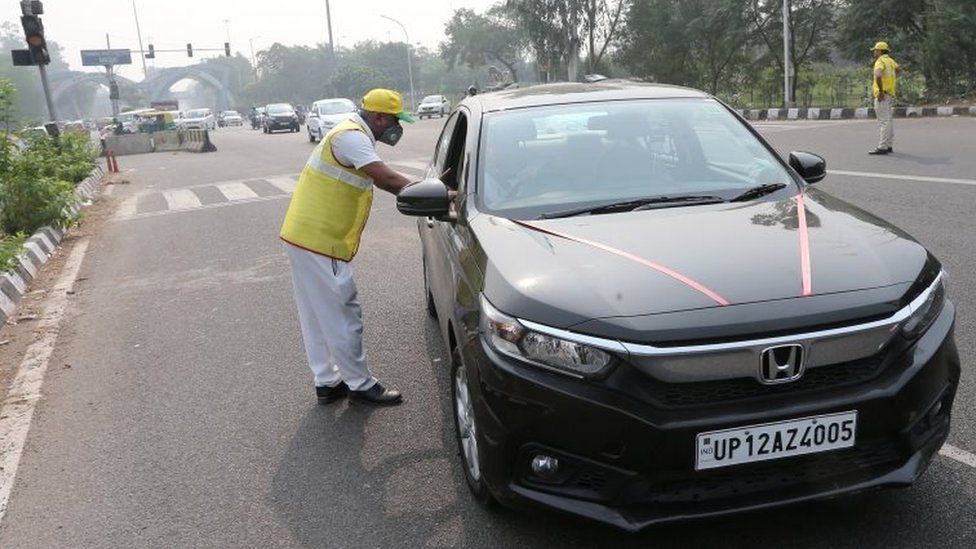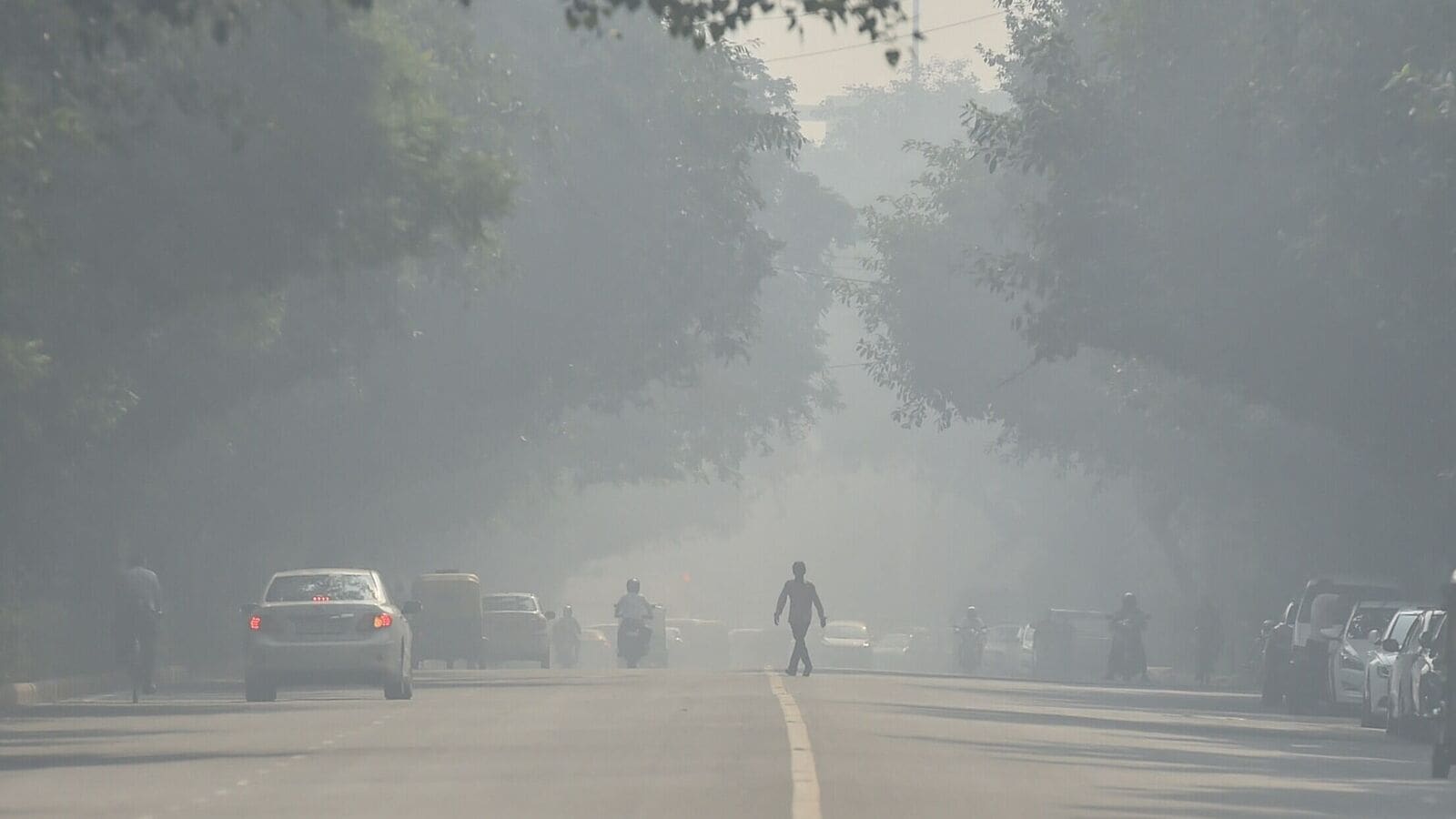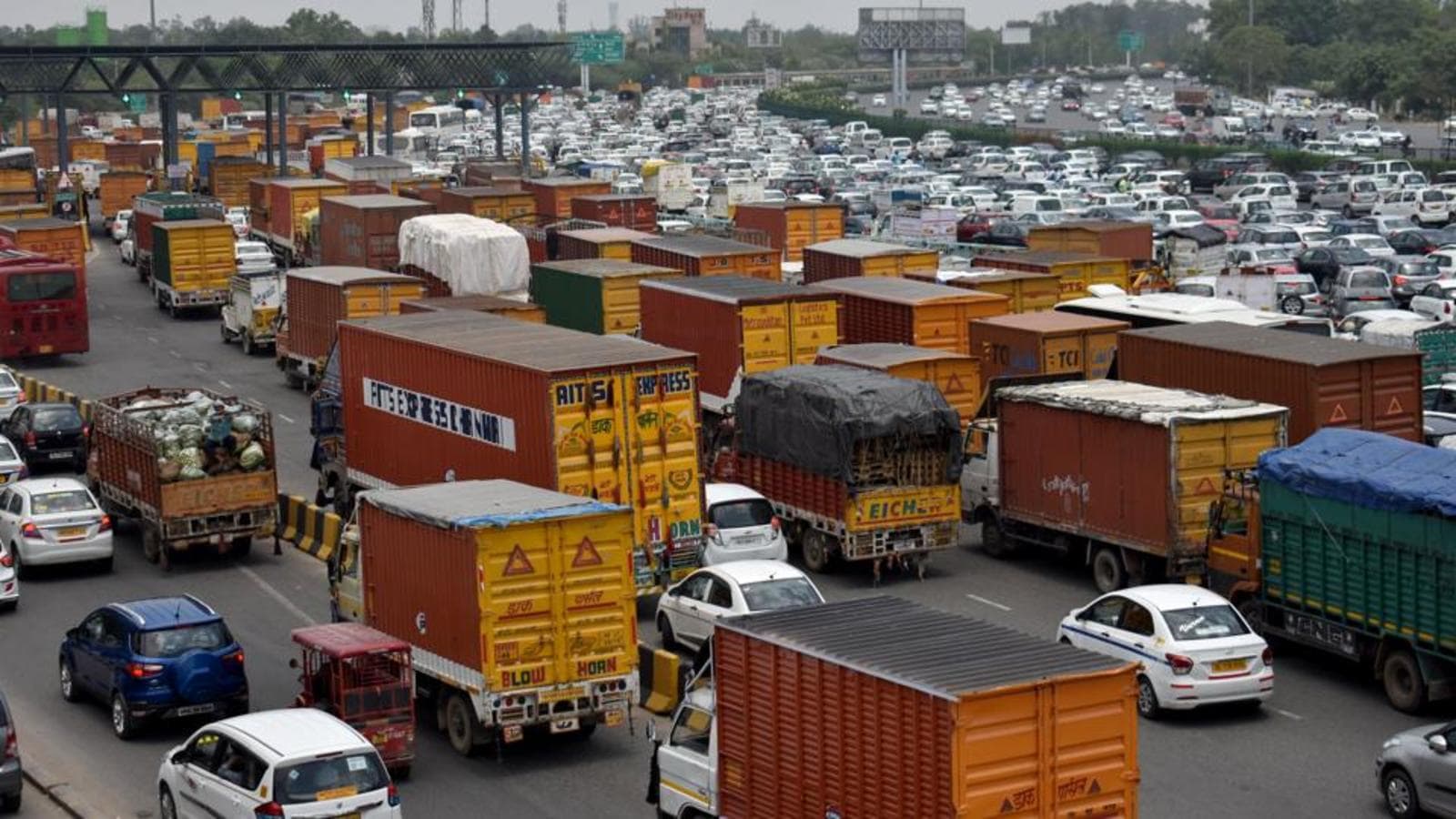
The government of Delhi is taking measures to combat the deteriorating air quality in the city. The odd-even car rationing scheme will return from 13 November to 20 November, and vehicles will be restricted based on the last digits of their license plates.
Air pollution has been a significant problem in Delhi, the bustling capital of India. This issue has led to poor air quality, which often reaches levels that are harmful to health. It is a significant concern for the people living there. In response to this crisis, Delhi's Environment Minister, Gopal Rai, has extended the ban on BS3 petrol and BS4 diesel cars, and construction-related activities in the city have also been suspended.
These measures are aimed at promoting cleaner air for Delhi's residents and are part of a collective effort to address the environmental challenges facing the national capital.
Let’s delve into this article to know more about the Odd- Even rule & how Delhi is combating air pollution (Delhi pollution).
What is the Odd-Even rule & why is it imposed?
Introduced by the Kejriwal-led government in 2016, the odd-even system permits the private vehicles to be driven only on alternating days, depending on the last digit of their number plate.
On odd dates, cars with license plate numbers ending in odd digits (1, 3, 5, 7, 9) will be allowed on the roads, while on even dates, vehicles with even-ending digits (0, 2, 4, 6, 8) will be permitted to operate.
-
Even dates (dates ending with 0, 2, 4, 6, 8)
-
Odd dates (dates ending with 1, 3, 5, 7, 9)
During the odd-even rule's previous implementation in 2016, the Delhi government clarified that the restrictions extended to non-transport four-wheelers from other states as well. Violating these restrictions would result in substantial fines for vehicle owners, emphasizing the stringent enforcement of the rule to combat air pollution in the city.
What is the AQI & why Delhi has poor air quality?
The Air Quality Index (AQI) is an essential tool for assessing and communicating the quality of air in a given area. It provides valuable information about the concentration of various air pollutants and their potential health impacts. The AQI typically measures pollutants such as particulate matter (PM 2.5 and PM10), ground-level ozone (O3), carbon monoxide (CO), sulfur dioxide (SO2), and nitrogen dioxide (NO2).
Now, Delhi often experiences poor air quality, resulting in a high AQI, due to a combination of factors:
-
Vehicular Emissions: Delhi has a high density of vehicles, and emissions from these vehicles are a major contributor to air pollution. Diesel engines, in particular, release significant amounts of pollutants.
-
Industrial Activities: The presence of industries and factories in and around Delhi can lead to the release of various pollutants into the air.
-
Construction and Dust: Construction activities generate dust and particulate matter, contributing to air pollution. Dust storms and unsealed roads are also sources of dust particles.
-
Agricultural Residue Burning: Burning crop residues in neighbouring states during certain seasons can introduce pollutants into Delhi's air.
-
Weather Conditions: Weather patterns, such as temperature inversions, can trap pollutants close to the ground, leading to the accumulation of contaminants and poor dispersion.
-
Geographical Location: Delhi's geographical location can contribute to poor air quality, as it is often impacted by the movement of air masses from different regions.
-
Household Activities: Using solid fuels for cooking and heating in households can release indoor air pollutants, contributing to outdoor air pollution.
-
Waste Burning: The burning of waste, including plastics, contributes to air pollution in the city.
-
Stubble Burning: In neighbouring agricultural regions, the burning of crop residues or stubble is a common practice, releasing pollutants that can be transported to Delhi by the wind.
Know Last Month Strategies to crack CLAT PG 2024
Timeline: What has happened so far?
1. Odd-even scheme to tackle air pollution in Delhi: The odd-even rule is set to be implemented from 13 November to 20 November.
2. License plate-based restrictions: Odd-numbered license plates will be allowed on the roads on odd-numbered dates, while even-numbered plates will operate on even dates during the restriction period.
3. Classes affected: Physical classes have been suspended for most students starting from November 13th to 20th, except for Classes 10 and 12.
 Source: BBC
Source: BBC
4. High-level meeting amid pollution crisis: Chief Minister Arvind Kejriwal convened a meeting to address the worsening air pollution situation.
5. Alarming pollution levels: Pollution levels in Delhi-NCR reached seven to eight times the safe limit, with a toxic haze persisting for the seventh consecutive day.
Explore best online courses for law exams which are specially designed for UG & PG law students with crash courses & current affair updates. Learn with Finology Legal & crack exams such as CLAT, AIBE, UPSC etc.
6. Vehicular emissions impact: A 2018 study showed that vehicular emissions contribute to around 40 per cent of PM 2.5 pollution in the national capital.
 Source: Hindustan Times
Source: Hindustan Times
7. Severe air quality: The air quality in Delhi remained in the 'Severe' category with an overall AQI of 410.
8. Stage IV of GRAP invoked: The Commission for Air Quality Management (CAQM) invoked Stage IV of the Graded Response Action Plan (GRAP) in the entire Delhi-NCR.
9. Highest pollution alert: Stage IV is the highest pollution alert, leading to significant restrictions and bans.
 Source: University Health News
Source: University Health News
10. Truck entry ban: Truck traffic into Delhi is banned, except for those carrying essential commodities or providing critical services.
11. Ban on diesel-operated vehicles: Delhi-registered diesel-operated Medium Goods Vehicles (MGVs) and Heavy Goods Vehicles (HGVs) are banned in Delhi, except for those transporting essential items.
12. Emergency measures: State governments may consider additional emergency measures, such as closing colleges and non-essential commercial activities, as well as running vehicles on an odd-even basis.
13. Preventive and restrictive actions: In addition to Stage IV measures, the preventive and restrictive actions under Stages I, II, and III of GRAP continue to prevent further air quality deterioration.
 Source: Hindustan Times
Source: Hindustan Times
Conclusion
In conclusion, the pollution problem in Delhi and the persistently high Air Quality Index (AQI) levels underscore the urgent need for comprehensive measures to address air quality issues. Air pollution, particularly smog, has led to a number of issues. Despite health problems, the working class is forced to stay outdoors. Popular tourist destinations are receiving fewer visitors, and street businesses are witnessing a cut in pay. It's an alarming situation that needs to be addressed as soon as possible.
Read latest news on laws in India. Get the detailed articles on legal, current affairs, geopolitics and Indian Constitution: Here